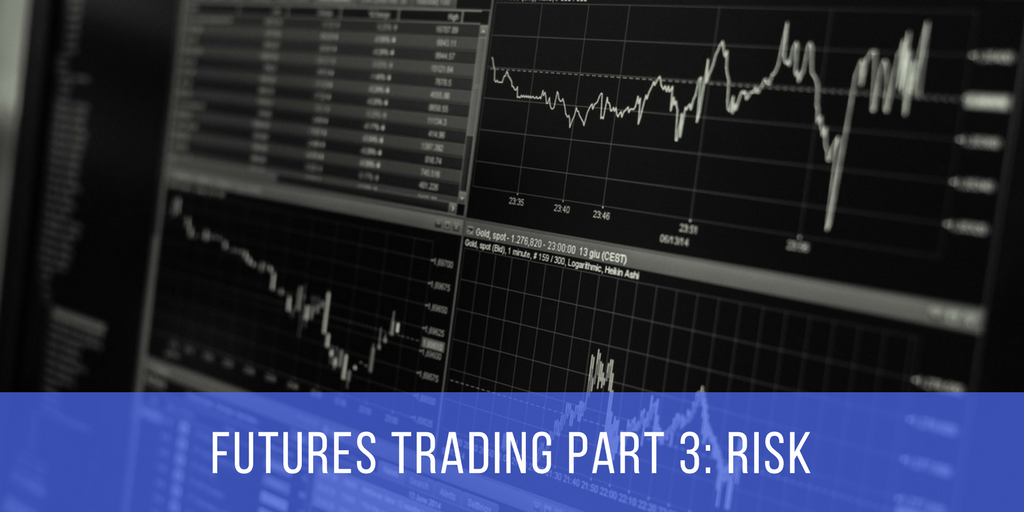If this is your first time tuning in, then you’ll probably want to check out my first two blogs in this futures trading series first, where I cover a basic introduction to futures trading and leverage. I’ve had an interest in futures trading for about as long as I’ve had an interest in finance- which is to say, it’s been awhile. It’s a tricky area of the stock market to explain to anyone because it is both a part of and separate from the overall stock market. Long story short, futures contracts have set expiration dates and stocks do not. But there’s a lot more to it than that, so I broke my explanation of futures trading into four sections covering key concepts. This is lesson three of four, covering risk.
Risk: you know what it is in general terms, but do you know how it relates to futures contracts? Unless you study the stock market as I do, probably not, but I’ll do my best to explain. Essentially, investing in futures contracts can be risky business. Managing risk is an important consideration for stock investment; however, unlike with traditional trading, with futures trading you can stand to lose more money than you put in. Therefore, you should have a full understanding of risk capital before trading in futures.
Risk capital is defined as the funds that traders can afford to lose. According to Rich Ilczyszyn, CEO and founder of iiTRADER.com, “You should not be trading futures with money reserved for necessities, such as housing, food, transportation.” Instead, you should consult an experienced broker to help you develop and assess your risk profile, and determine the right asset classes.
To know what you’re getting yourself into and avoid trading with risk capital, there are several considerations that should factor into your decisions before trading in futures. First, do your research and go with an experienced brokerage firm. Commission rates, margin requirements, level of executions, types of trade, software and user interface, and customer service are all important considerations. Also consider the level of service you require. If you’re more of a do-it-yourself person, then you may want to save yourself some money and go with a discount broker for lower commissions and fees. However, if you’ve never traded in futures before (or any stocks) then a full-service broker may be for you, as they will provide a higher level of service and advice for a slightly higher cost.
Your next considerations should be the category and type of futures that you want to trade. There are various categories involved in the futures market, which Investopedia suggests thinking of as industries. The individual contracts within these categories can be compared to stocks. For instance, agriculture energy, equity index, currency futures (FX), interest rates, and metals are all categories and there are contracts within those categories. As a general rule of thumb, you should stick to what you know when deciding which market categories and instruments you will trade. If you have a background in agriculture, for example, then you might want to trade in that category since you already have an understanding of the market.
There are also different types of trades to consider. At the most basic level, you can either buy or sell futures contracts, but there are different trading techniques employed by futures traders, starting with basic trades whereby the trader makes a wager that the price difference between investment and futures will fluctuate, and encompassing spread trades (a wager that the price difference between two futures contracts will change) and hedging (where a trader sells a futures contract to protect against a stock market decline).
My explanation of risk management in futures trading is by no means exhaustive, but hopefully it makes you realize that there are a lot of important considerations that go into futures trading and encourages you to do your research before committing to a contract.
